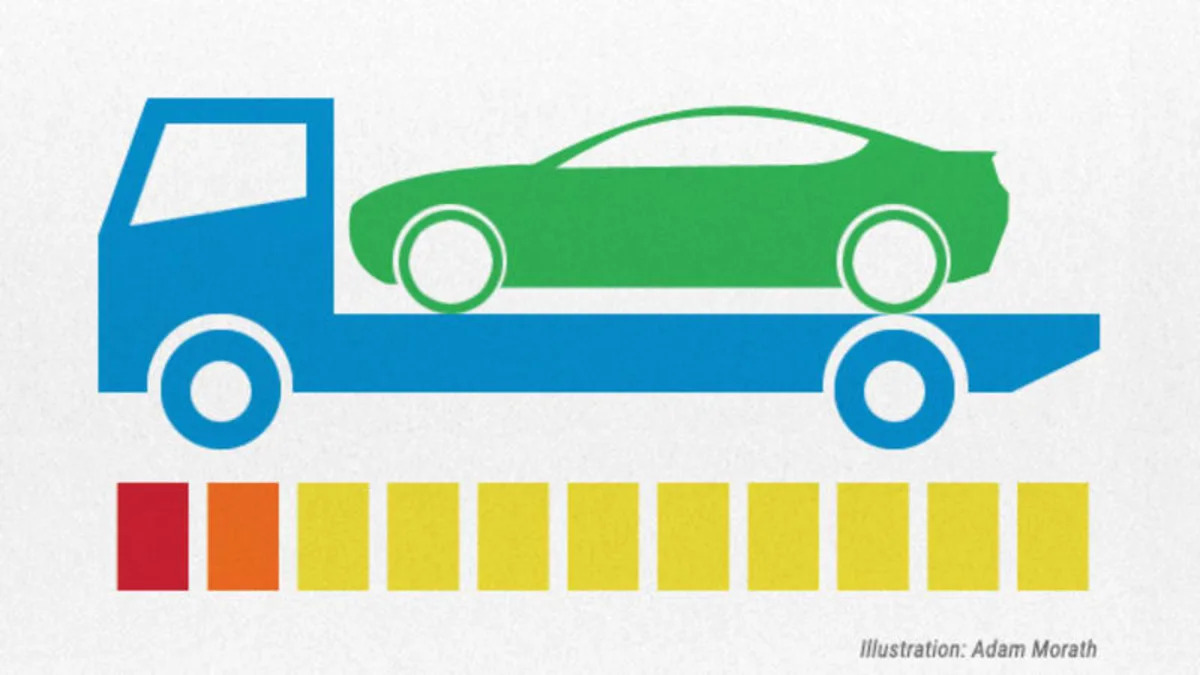Regardless of outcome, anti-electric biases revealed
News flash: Electric cars have a limited range. Driving style and conditions can affect mileage. And if you don't heed your gauges, you may run out of power...and out of luck.The same can be said of any gas-powered car.
So why is it that we have never seen a report of someone running out of fuel during a test drive of a gas car? Why aren't news crews rushing to the scene of some pour soul, spotted walking down the side of the highway with gas can in hand?
And why, conversely, is so much fuss being made over an apparent stalled Tesla Model S, as reported by The New York Times?
New York Times reporter John M. Broder claims that his Tesla Model S media vehicle shut down due to a low battery charge during his test of the electric automaker's East Coast Super Charger network. Tesla CEO Elon Musk has very publicly refuted this claim, taking to Twitter and Tesla's corporate blog to post his retorts.
Behind the back-and-forth between Musk and Broder lies the deeper issue of bias against electric cars. Mr. Broder feels that Tesla's electric sports car underperformed its mileage projections, rendering the car unable to complete the Super Charger circuit as advertised. Mr. Musk argues that Broder didn't charge to full, lied about the speed at which he traveled, and took detours and drove in circles in an attempt to deplete the battery. Tesla backs up their bark with data, apparently collected during the test drive--a practice the automaker put in place following a similar incident with the BBC's popular Top Gear television program. Update: Broder's detailed rebuttal to Musk's allegations.

Could it be that Mr. Broder fudged the test with an aim to takedown the electric car? Perhaps, but he also could've been driving in circles as part of an earnest method to test the technology, as Forbes suggests. Could it be that Tesla fudged its data in an effort to protect their own best interests? Sure, it's possible. But no matter who is the honest party, the very fact that we're having this debate is an indication of anti-EV bias.
True, EVs don't enjoy the same ubiquitous infrastructure and quick refueling times of their gas-powered counterparts, although that's changing. Regardless, that doesn't change the fact that when a gas vehicle underperforms its stated miles per gallon estimates (an all-too common occurrence), we don't see newspapers running photos of a stalled car being raised on to a flat bed. We don't see headlines questioning gasoline as a viable fuel source. That's because it's accepted that, if you drive a gas car on "empty" for too long, you'll run out of fuel. Why isn't this same common sense logic applied to electric vehicles?
Nobody is debating that a Tesla Model S can run out of juice and leave you stranded. How it happened in the case of Tesla v. Times is beside the point as well. The real story here is that a car stalling out due to running on empty shouldn't be a story at all, whether gas or electric. Moreover, we shouldn't let stalling cars stall the progress of promising technologies.
TRANSLOGIC Editor Adam Morath appeared on HuffPost Live to discuss the article.


Sign in to post
Please sign in to leave a comment.
Continue